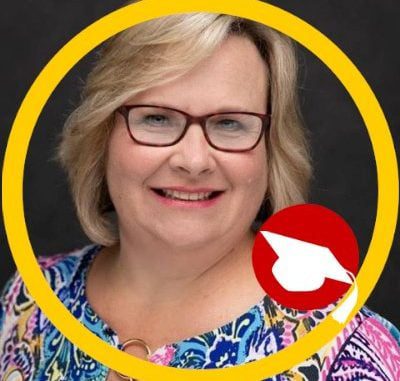
The COVID-19 pandemic has forced everyone to reexamine every aspect of our lives — from where we work to how we worship to what schools look like for our children. As Executive Director of the North Carolina Association for Public Charter Schools — our state’s advocate voice for more than 120,000 students in public charter schools – I have spent the last six months listening to how our members are coping with the pandemic. I have also kept my ear to the ground to stay on top of the ever-changing guidelines that our schools must follow.
All that listening over the past six months has taught me three incredibly important lessons about our education system in North Carolina for both charter and traditional public schools. One, in some areas like building relationships with students and families, we’re learning new and better ways to do what we’ve done for years. Second, in other areas like equal access to connectivity and technology, the gaps and weaknesses in systems we’ve used for years have been exposed. Third, we need to do much more listening to our students’ parents and families to ensure that our state’s education policies and priorities are focused on what they feel is most important around their kitchen tables.
This week, EdChoice released a needed and timely survey focused on what NC parents need and expect from our K-12 system. “Families’ Schooling Experiences in North Carolina: 2020 North Carolina Parent Survey” examined our state’s school choice programs by surveying K-12 parents as well as how their schooling experiences have been affected by the COVID-19 pandemic. While no survey can speak to all family situations across our 100 counties, EdChoice provides a valuable glimpse into fears, hopes, challenges, and priorities of 243 families with students currently in charters in NC.
As a former high school English teacher and charter school leader, I have worked with parents with children in charter, traditional public, private, as well as home schools, and I know the special appeal of charters. For example, I know that parents who choose charters place a high value on academics that tie directly to skills for future employment — 90% according to EdChoice survey.
I also hear almost daily from the parents and school leaders that I work with that relationships and connections between teachers, students, and their families are vitally important to student success. Parents surveyed on this topic by EdChoice show that charter school families had the highest most-positive response in four of the six qualifying categories. One such response was: “the school staff make me feel welcome at school and I have a good relationship with my child’s teacher(s)” which led to overall satisfaction and retention in the following school year..”
The survey also revealed that parents of children in charter schools are facing the same fears and challenges as their neighbors in traditional public schools, especially during the pandemic. The survey revealed that 53% of parents of children in charter schools and 56% in traditional public schools see their greatest COVID-19 challenge as “trying to keep a schedule or routine.” Further, 36% of parents with children in both charter and traditional public schools believe their biggest challenge is “my own expectations for my child’s learning.”
The most significant finding of the survey is something that we have always known: all parents want a school that provides the best academics in the safest environment. This is why there really aren’t charter school parents or traditional school parents — there are only parents who want the best option for their children. Imagine how much easier the debate in Raleigh would be if our policymakers didn’t make decisions about funding, reopening, and school options pitting one group against another, but instead remembered they are all committed parents who need support to reach the same goal.
Rhonda Dillingham is a former high school English teacher, charter school founder and leader, and is now the Executive Director of the North Carolina Association for Public Charter Schools.


